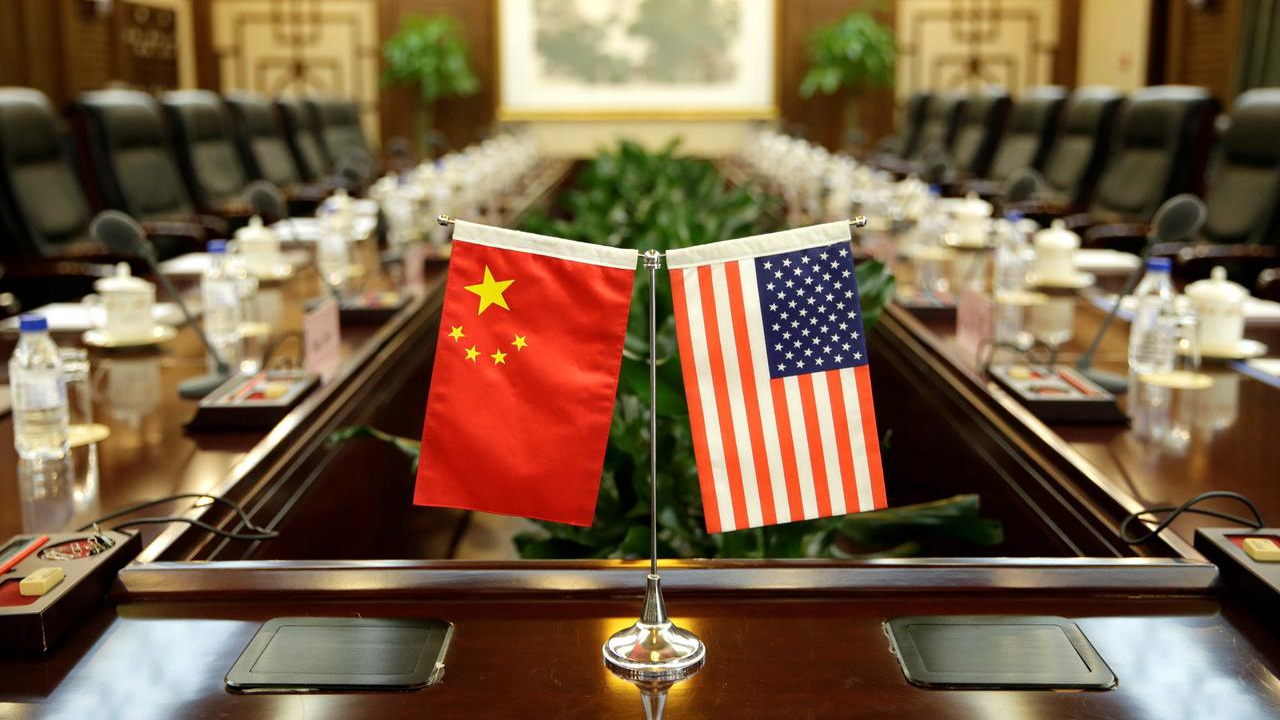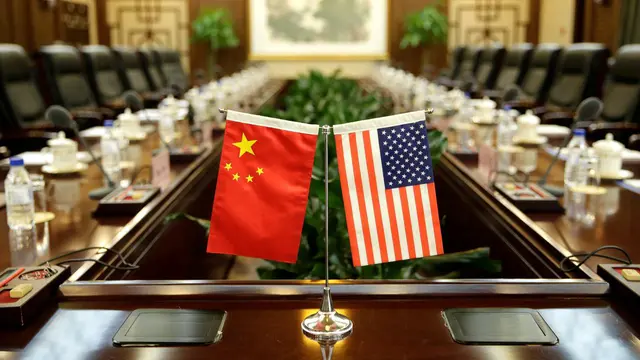The United States said on Friday it would add 33 Chinese firms and institutions to an economic blacklist, citing "national security" and "human rights" issues.
The U.S. Commerce Department said in
a statement
that it will add 24 Chinese governmental and commercial organizations to the Entity List "for engaging in activities contrary to the national security or foreign policy interests of the United States."
The department
also blacklisted
seven Chinese companies and two institutions, accusing them of involvement in "human rights violations" against ethnic groups in west China's Xinjiang Uygur Autonomous Region.

Flags of China and the U.S. are placed for a meeting between Secretary of Agriculture Sonny Perdue and China's Minister of Agriculture Han Changfu in the Ministry of Agriculture in Beijing, China, June 30, 2017. /Reuters
Being listed to the so-called entity list will result in restrictions over sales of U.S. goods shipped to the companies and some more limited items made abroad with U.S. content or technology. Companies can apply for licenses to make the sales, but they must overcome a presumption of denial.
The list also includes Softbank Group Corp-backed CloudMinds that operates a cloud-based service to run robots such as a version of Pepper, a humanoid robot capable of simple communication.
Another banned company, CloudWalk Technology, a Guangzhou-based developer of facial recognition software for the financial, public security and aviation sectors, said the move was "in accordance with expectation."
The actions follow the same blueprint used by Washington in its attempt to limit the influence of the world's top telecom giant Huawei Technologies for what it says are national security reasons. Last week, the U.S. took action to try to further cut off the Chinese company's access to chipmakers.
"The U.S. suppression targets not only Chinese enterprises but focuses more on industries," Bai Ming, deputy director of the Academy of International Trade and Economic Cooperation in the Ministry of Commerce, told CGTN. "The U.S. tactic to strike the Chinese technology industry shows the characteristics of 'a combination blow,' among which non-business purposes become pronounced, sacrificing even the United States' interest."
"Do not think the U.S. is only targeting tech giants like Huawei, it is also plotting to round up small and medium-sized ones that have potential to become bigger and stronger and knock them off collectively," Bai added.
Bai said the U.S. is escalating a trade fight because it wants to remove China from high-end manufacturing and keep the country locked in low- and mid-end production. "Particularly in high-end manufacturing, the U.S. especially does not want China to enter this arena."
"Especially with the way Chinese companies are developing, the U.S. sees them as a threat instead of looking to cooperate to create something bigger and better. The U.S. does not see it as a cake to be shared, but emphasizes more on wanting to have the whole cake for itself," Bai said.
The new listings follow a similar October 2019 action when the U.S. added 28 Chinese public security bureaus and companies – including some of its top artificial intelligence startups and video surveillance firms.
China's Ministry of Commerce in October expressed "strong opposition" to the U.S. blacklisting of Chinese firms on human rights accusations, saying it was smearing China's domestic policies aimed at preventing terrorism and improving the local economy in Xinjiang.
 简体中文
简体中文






